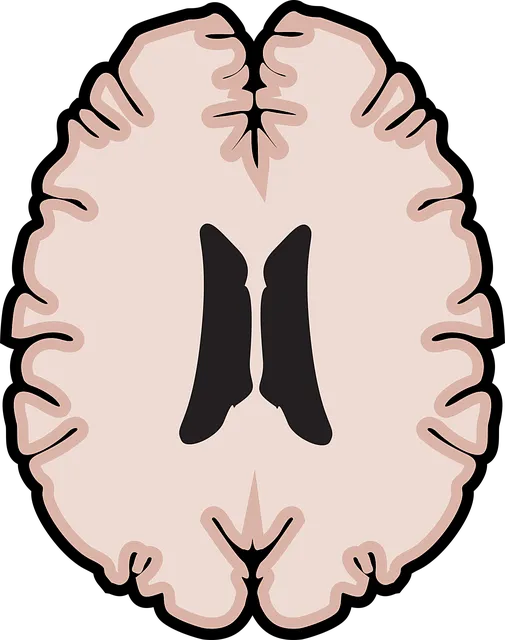Westminster and Kaiser provide evidence-based mental wellness programs leveraging cognitive-behavioral therapy, mindfulness, group support, and empathy building. Their tailored interventions, measured through reductions in anxiety/depression symptoms, emotional intelligence improvements, and enhanced social skills, ensure positive client outcomes. Continuous program enhancement via feedback loops and data-driven decisions underscores their commitment to offering top-tier mental health services that cater to diverse needs.
Westminster, like many organizations, prioritizes employee well-being with mental wellness programs. But how do we know these initiatives are effective? This article explores evaluation methods for mental wellness programs, focusing on Westminster’s experience and best practices. We’ll delve into assessing Kaiser’s mental health services, defining success through metrics, gauging client satisfaction, and implementing continuous improvement strategies to ensure impactful and inclusive support.
- Understanding Mental Wellness Programs
- Evaluating Kaiser's Mental Health Services
- Metrics for Measuring Success
- Assessing Client Satisfaction
- Continuous Improvement Strategies
Understanding Mental Wellness Programs

Mental wellness programs are designed to support individuals’ emotional and psychological well-being, addressing various aspects of mental health. These programs often incorporate a range of evidence-based practices tailored to meet diverse needs, from stress management and mindfulness techniques to cognitive-behavioral therapy and group support sessions. Westminster and Kaiser, for instance, offer comprehensive mental health services, highlighting the growing recognition of mental wellness as an integral part of overall health.
Understanding mental wellness involves acknowledging that it goes beyond the absence of mental illness; it’s about fostering resilience, promoting healthy coping mechanisms, and encouraging self-care practices. Incorporating Mind Over Matter principles, which emphasize the power of thoughts and beliefs in shaping emotional states, can be a potent tool within these programs. Additionally, Empathy Building Strategies, aimed at enhancing understanding and connection between individuals, contribute to creating supportive environments that encourage open discussions about mental health.
Evaluating Kaiser's Mental Health Services

Westminster’s Kaiser offers a comprehensive range of mental health services designed to support individuals facing various psychological challenges. Their evaluation methods are equally robust, focusing on tailored interventions for improved mental wellness. Through structured assessments and ongoing progress tracking, Kaiser aims to identify unique needs and tailor treatments accordingly.
The program prioritizes evidence-based practices, incorporating techniques like cognitive behavioral therapy (CBT) for anxiety relief, mindfulness strategies for stress reduction methods, and group therapy sessions that foster self-esteem improvement. Regular check-ins and feedback mechanisms ensure the effectiveness of these interventions, allowing for continuous adjustment to meet individual goals.
Metrics for Measuring Success

When evaluating the success of a mental wellness program, such as those offered by Westminster or Kaiser, it’s crucial to look beyond simple participation rates and delve into metrics that truly reflect positive changes in individuals’ lives. Key indicators include reduced symptoms of anxiety and depression, measured through standardized assessments like the Beck Depression Inventory (BDI) or Generalized Anxiety Disorder 7-Item Scale (GAD-7). Additionally, tracking improvements in emotional intelligence, as gauged by validated scales, can provide insight into participants’ ability to manage emotions and navigate social interactions effectively.
Program effectiveness should also be assessed through the lens of enhanced social skills, often targeted through interventions like Social Skills Training. This can be evaluated using observation checklists or self-reported surveys that measure areas such as communication fluency, appropriate use of nonverbal cues, and positive interpersonal relationships. By combining these metrics, organizations like Kaiser and Westminster can gain a comprehensive understanding of their mental wellness programs’ impact, ensuring they foster meaningful improvements in participants’ emotional well-being.
Assessing Client Satisfaction

Evaluating client satisfaction is a vital component of any mental wellness program, offering insights into the effectiveness and accessibility of offered services. At Westminster, Kaiser’s commitment to mental health includes diverse initiatives aimed at improving patient outcomes. By measuring client feedback, they can ensure their programs meet the unique needs of individuals seeking support for conditions such as depression or burnout, which are prevalent among healthcare providers.
This process involves gathering qualitative and quantitative data through various methods. Surveys, for instance, allow clients to rate their satisfaction with therapy sessions, medication management, and overall care coordination. Additionally, open-ended questions encourage clients to share their experiences, providing valuable insights into areas of improvement. Self-awareness exercises can also be incorporated, helping individuals reflect on their emotional well-being and the program’s impact on their lives, thereby facilitating depression prevention or enhancing burnout prevention strategies for healthcare providers.
Continuous Improvement Strategies

Westminster and Kaiser both recognize the importance of continuous improvement in mental wellness programs to better serve their communities. By integrating feedback loops and data-driven decisions, these institutions aim to adapt services based on client needs and societal changes. For instance, Kaiser’s approach includes regular evaluations using validated tools to measure depression prevention strategies among healthcare providers, ensuring interventions remain effective against rising mental illness stigma.
Similarly, Westminster employs dynamic assessment methods to identify burnout prevention strategies for healthcare providers, addressing a significant risk factor in the profession. These ongoing assessments inform tailored programs that foster resilience and promote balanced work-life integration. Both organizations understand that staying current with best practices is essential in managing mental health effectively, thereby enhancing patient outcomes and overall community well-being.
Westminster’s Kaiser offers comprehensive mental health services, and evaluating these programs is essential for ensuring their effectiveness. By employing various evaluation methods, including metrics for measuring success and client satisfaction, we can assess the impact of these services. Continuous improvement strategies are vital to enhancing mental wellness programs, fostering a supportive environment, and promoting overall well-being among clients. This structured approach allows Kaiser to adapt and revolutionize its mental health offerings, making a tangible difference in the lives of those seeking support.






